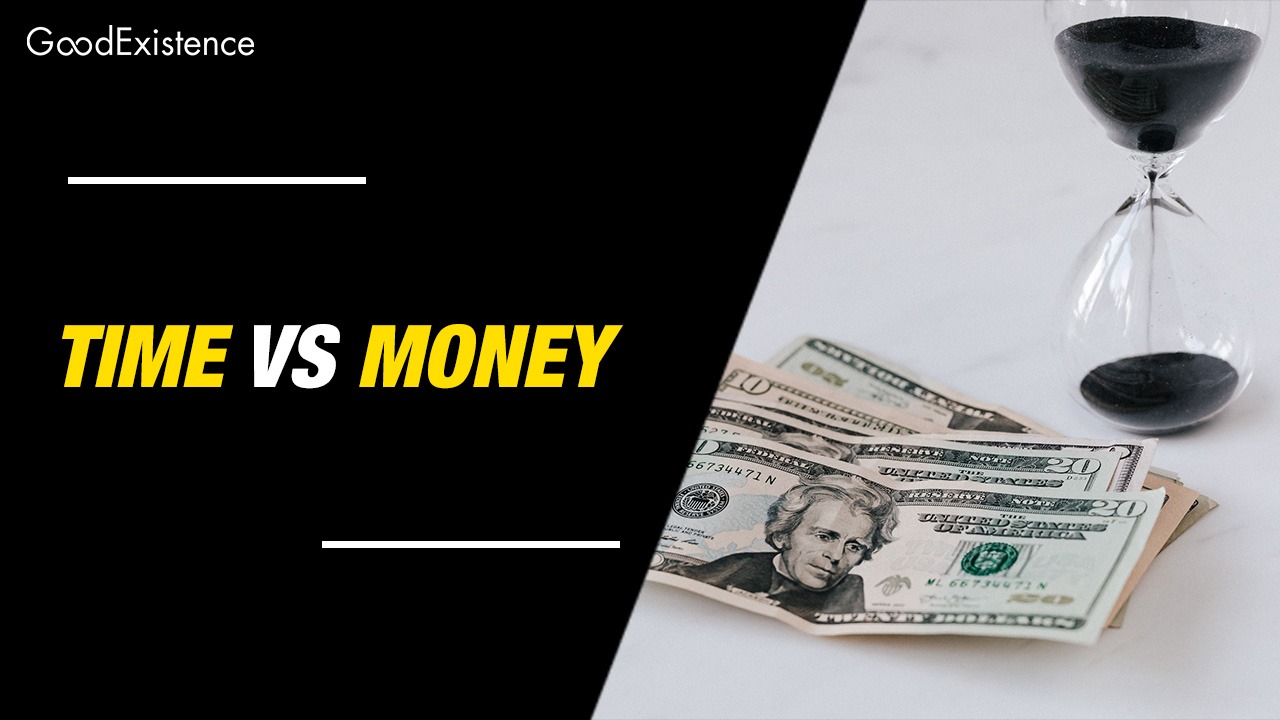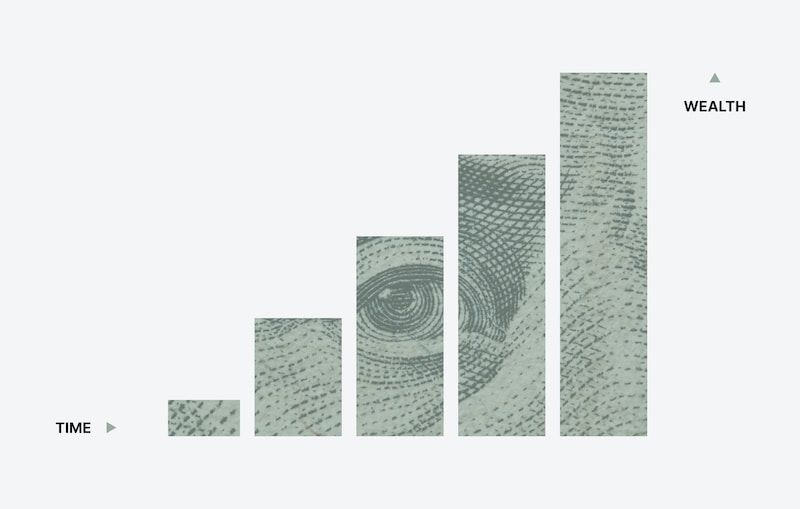
The time vs money debate is an old one by now, and depending on circumstances and who you ask, you will get a different response almost every time. Some value time, others value money more.
We’ve all heard the saying, “Time is money”. Well, what if I told you it’s not that simple? Time and money, two critical resources in our lives, are often pinned against each other. But which holds more value? Let’s embark on a journey to find out.
The Basics: Understanding Time and Money

What is Time?
Time is the most universal currency. It’s the constant, ticking away, reminding us of life’s fleeting nature. Unlike money, once spent, we can’t earn it back. Every second, every minute, every hour marks our existence and choices.
What is Money?
Money, on the other hand, is a tangible measure of value. It’s a tool, a medium of exchange, used to obtain goods, services, and experiences. Unlike time, with effort and strategy, we can earn more of it, we just need… more time to do so. Yeah, it gets confusing now, doesn’t it?
Time and Money in Today’s Society

The Rat Race: Chasing the Elusive Dollar
Have you ever felt like a hamster on a wheel, running tirelessly after money, never seeming to reach a final destination? In today’s fast-paced society, the demand for more – more wealth, more possessions, more status – can be overwhelming.
As the cost of living rises and societal expectations amplify, many find themselves in a perpetual race, always trying to outdo not just others, but their own previous accomplishments.
This never-ending loop often blinds us to life’s simpler joys.
We sacrifice precious time, missing out on milestones, relationships, and self-care, all in the name of securing a better financial future.
The Luxury of Time
However, a paradigm shift is emerging. There’s a growing trend where people are realizing the invaluable nature of time.
Time, after all, isn’t renewable. Unlike money or possessions, once it’s gone, it’s gone forever.
Individuals are increasingly valuing experiences over possessions, and memories over materialism. Instead of working endlessly for a luxurious car, many now opt for a weekend getaway to create lasting memories.
Or instead of buying a sprawling mansion, they’re choosing a cozy nook that offers more family time.
In an age where everything is transient, moments of love, laughter, and learning are becoming the real treasures, much more prized than any material luxury.
The Psychological Impact of Time and Money

Time Affluence vs. Material Wealth
Psychologically, time affluence (the feeling of having plenty of time) can lead to greater happiness than material wealth.
Why?
Because time affluence allows us to engage in activities that truly fulfill us, whether it’s pursuing a hobby, spending time with loved ones, or simply resting.
The Constant Battle Within
Yet, there’s a paradox. While many crave time affluence, the allure of money remains strong. We’re torn between wanting to make more money for security and desires, and the need to have more time to enjoy life’s pleasures.
Investment Perspectives: Time vs Money

The Value of Investing Time
Time is a non-renewable asset, making its investment invaluable. When we invest our time in relationships, we nurture bonds that can provide emotional support and create memories that last a lifetime.
Dedicating time to personal growth allows us to evolve, learn, and mature, enriching our lives in ways that make our journeys fulfilling.
Delving into passions, be it art, music, literature, or any endeavor close to our heart, adds layers to our personality and provides solace in challenging times. These investments yield intangible rewards that money can’t replicate.
You can’t put a price tag on the joy of a shared laugh, the warmth of a tight hug, the pride in mastering a new skill, or the peace in pursuing a beloved hobby.
Happiness, satisfaction, and cherished memories are the dividends of investing our time wisely, and these are riches no bank or institution can ever promise.
Financial Investments: A Necessary Evil
While the intrinsic value of investing time is undeniable, one can’t overlook the significance of financial investments.
Money, as they say, makes the world go round. Financial investments, when made judiciously, act as a safety net, ensuring our and our loved ones’ well-being.
They provide the security of knowing that unforeseen circumstances or needs won’t catch us off guard.
Moreover, these investments can open doors to opportunities – be it education, travel, business ventures, or even early retirement.
Financial freedom is a real and tangible goal for many, enabling them to chase dreams without monetary constraints.
And in a certain ironic twist, having a solid financial foundation, through wise investments, can indeed buy us more free time. It can mean less time working overtime, more time for leisure, and even the potential for an early, relaxed retirement.
While money in itself isn’t the end goal, it’s a tool that, when used right, can greatly enhance our life experiences.
Practical Implications: Balancing Time and Money

Time Management for Financial Success
Effective time management is the linchpin to financial prosperity. By organizing our hours and prioritizing tasks, we can streamline processes, reduce wasted moments, and enhance our output.
Imagine being able to complete a day’s work in just a few hours and having the rest of the day to indulge in other profitable ventures or self-improvement.
This doesn’t merely lead to monetary gains but also elevates our professional stature.
Colleagues and supervisors recognize and value efficiency, often leading to further opportunities.
It’s truly about maximizing the utility of each moment. By mastering the art of time management, we not only boost our earning potential but also carve out quality moments for relaxation and leisure.
Money Management for Time Liberation
A well-curated financial strategy is more than just about growing wealth; it’s about reclaiming our time.
Efficient money management, which encompasses budgeting, saving, and investing, lays the foundation for financial security.
When we’re not constantly stressed about the next bill or unplanned expense, we’re free to focus our time and energy on passions and relationships.
It’s about having the flexibility to take a day off without fretting over lost wages or going on a vacation without the burden of debt.
Furthermore, as our finances grow and stabilize, we might even find ourselves in a position to opt for part-time work or early retirement, thus truly liberating our most valuable resource: time.
Time vs Money: Conclusion

The battle of time vs money will forever rage on. However, understanding their true value can help us strike a balance, leading to a more fulfilling life.
So, ask yourself, what’s more important to you: the relentless pursuit of wealth or the luxury of time? For me, it’s definitely time. As I’ve grown older I’ve realized that you don’t need a whole lot of money in order to be truly happy.
We all need to remember that our time on Earth is limited. Every day, hour, and minute that passes is one we can’t get back.
While it’s essential to secure our financial future, we should be wary of letting the pursuit of material possessions dominate our lives.
It’s easy to get caught up in wanting the latest gadgets, bigger homes, or fancier cars. But when we look back on our lives, it’s the moments with loved ones, the experiences we’ve had, and the time we’ve spent on things we’re passionate about that will stand out.
It’s crucial to find a balance, to work towards financial security, but not at the expense of missing out on life’s meaningful moments.
After all, while we can earn money back, time once lost is gone forever. That’s why you should always make time for your personal goals.
Let’s prioritize wisely and make the most of our limited time here.
Time vs Money – FAQs
The value of time and money is subjective and varies from person to person. However, time, once lost, can never be regained, making it invaluable for many.
While money can’t reverse the clock, it can free up time. Outsourcing tasks, hiring help, or investing wisely can provide more leisure time.
Both are resources we trade for goods, experiences, and life satisfaction. Hence, they’re often weighed against each other in decision-making.
Prioritize what truly matters to you, budget both time and money, and constantly reassess your goals and choices.
Studies have shown that time affluence can lead to increased happiness, but it’s essential to ensure financial stability to enjoy that time fully.





